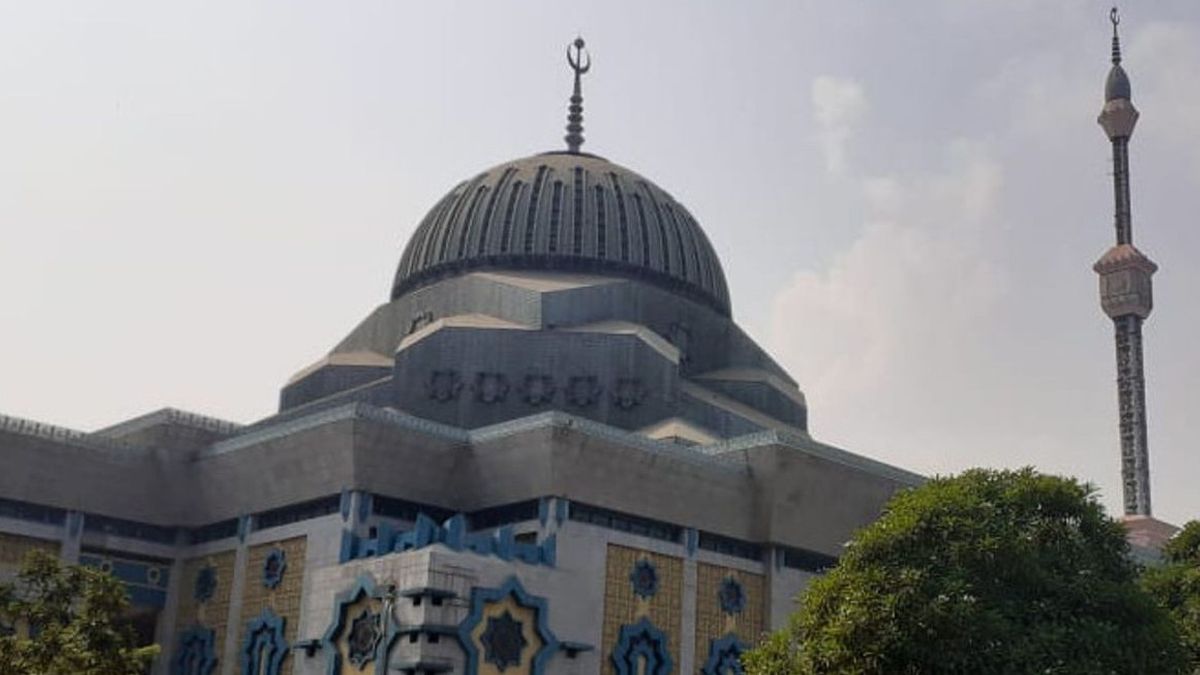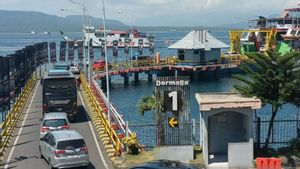JAKARTA - The practice of prostitution often disturbs the view of Jakarta. The presence of women who are difficult to control is behind it. Ali Sadikin also felt it. The governor of DKI Jakarta 1966-1977 felt that the presence of illegal prostitution made Jakarta's image dirty.
He also planned to build localization. Kramat Tungga, his name. The option was criticized by many parties. Mainly ulama. The protests were only heard in the 1990s. As a change, the localization ground was built by a large mosque: the Jakarta Islamic Center (JIC) Mosque.
The business of trying often adorns the long history of Jakarta. In fact, since the Dutch era. The practice of prostitution has proven to be able to bring high profits. However, in the Dutch era the prostitution business was directly supervised by the government. Meanwhile, during the era of independent Indonesia, the practice of prostitution was illegal.
This practice is increasingly mushrooming in the midst of economic difficulties. Almost every area in Jakarta is a place for women to earn a living. The Senen area, one of which is. Every day the Senen area is often crowded with women who sell their services and mashers who act as service connoisseurs.
This scene is common. However, it often provokes trouble. The image of Jakarta, especially the Senen area, gets dirty. Ali Sadikin felt it. The Jakarta leader wants a female suspect or in his language called a woman P to be put in order immediately. However, the power of the DKI Jakarta government is limited. The power owner cannot accommodate and give female sungusila a job. After all, the number reaches hundreds of thousands.
Ali Sadikin's most reasonable option was to provide localization in 1970 in North Jakarta. Kramat Tungga, his name. Ali imitated Bangkok, Thailand, which was successful with localization. The goal is that prostitution activities are centralized and controllable.
One time I went to Bangkok which is famous for its sex industry. There I asked the people of our embassy, where were the places of the sex industry? How come I didn't see it. Indeed, the places of prostitution were not visible. Here is the place, sir, he replied. This is localized. I was taken to his place. Curious. Want to know how these places localize women.
This raises my mind, to apply what I see in Jakarta. So that in this capital city it doesn't look dirty, not dirty. That's what later became my policy of moving the woman P from Senen, from the area of Kramat Raya which was full of sweeps with the butterfly that night, to Kramat Tungga. The start of Kramat Tungga is still a swamp. Then it became a place that many people called. It was the localization place for women P, said Ali Sadikin as written by Ramadhan KH in the book Bang Ali: Demi Jakarta 1966-1977 (1992).
Ali Sadikin's decision to 'legal' prostitution provoked protests. Especially from the scholars. Ali Sadikin also had his bad luck by being nicknamed the Governor of Maksiat. However, Ali Sadikin did not want to change his decision. He remains stubborn. Ali Sadikin considers the presence of localization to bring benefits. Meanwhile, the scholars saw that Kramat Tunggak was only a lot of harm.
The criticism was only taken seriously when Sutiyoso became the number one person in Jakarta in the 1990s. The governor of Jakarta tried to consider closing the localization. Because, he didn't want to be careless. Thousands of women who depend on Kramat Tunggak's life.
Sutiyoso also formed a special team to discuss the closure of Kramat Tunggak. The team serves to find a way out for women who seek a living to continue living on other roads. They were also offered compensation money. The rest of the government moved to provide assistance to women who were shootouts for five years.
For this reason, the localization of Kramat Tungak was officially closed on December 31, 1999. The image of Kramat Tungga localization is still attached. In fact, it brought a bad image to the former location of the prostitution practice. Sutiyoso did not remain silent.
He planned the establishment of the Jakarta Islamic Center (JIC) mosque in the former Kramat Tungga localization area. The idea was also tried to be discussed with religious leaders at the Jakarta center. The idea of building the JIC Mosque was fully supported.
Sutiyoso did not play games in building the JIC Mosque. The architect was chosen the most quality with an architect label specializing in the mosque. Ahman Numan, his name. The mosque is planned to occupy 109,435 square meters of land.
The JIC Mosque is predicted to be able to accommodate tens of thousands of worshipers at once. The pinnacle of being loved by scholars arrived. The JIC Mosque was inaugurated by Sutiyoso on March 4, 2003. The presence of the JIC Mosque made the Kramat Tuangga echo slowly disappear.
Actually, after the land acquisition there were several efforts to replace the land function of the former Kramat Tunggal; there were those who proposed the construction of trade centers such as malls, some wanted office development, and others. On the idea of the Governor of DKI Jakarta, Sutiyoso, the construction of the Jakarta Islamic Center began after the idea was supported by various elements of society through the Curah Idea Forum in 2001.
The idea was also conveyed by Sutiyoso to the Chancellor of UIN Syarif Hidayatullah Jakarta, Prof. Dr. Azyumardi Azra in New York on the sidelines of his visit to the United Nations (UN) on 11-18 April 2001 and received a very positive response. The JIC Mosque finally stood on a land area of 109,135 m and was inaugurated by the Governor of KDKI Jakarta H. Sutiyoso on 4 March 2003. In the same year, the IC organization was determined based on the Decree of the Governor of KDKI Jakarta No. 99/2003 concerning the Establishment of Organizations and Work Procedures of the Jakarta Islamic Study and Development Center Management Agency (Jakarta Islamic Center), written in the Salafism Voicebook: Radio Da'wah in Indonesia (2017).
The English, Chinese, Japanese, Arabic, and French versions are automatically generated by the AI. So there may still be inaccuracies in translating, please always see Indonesian as our main language. (system supported by DigitalSiber.id)









